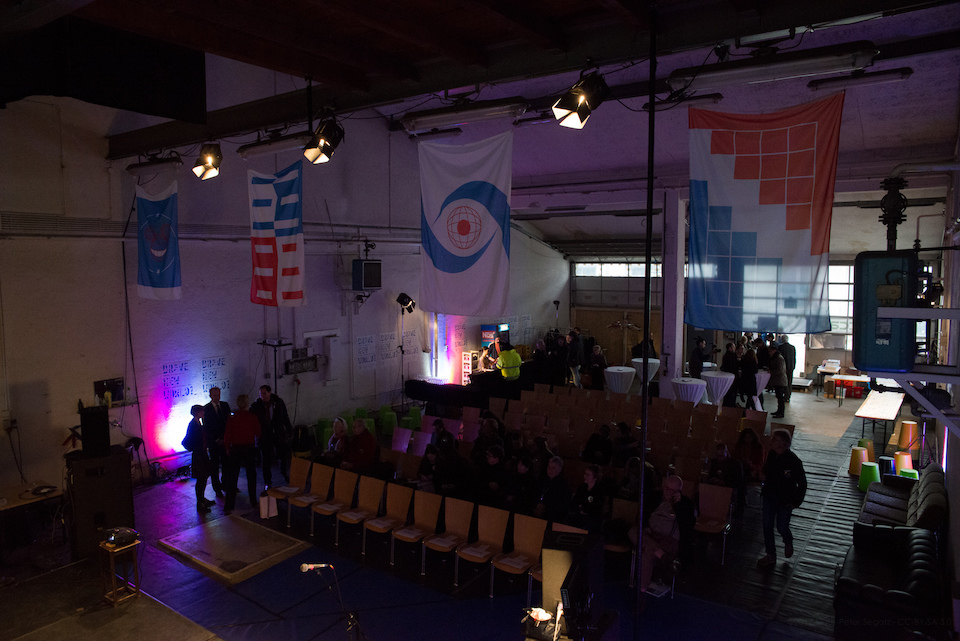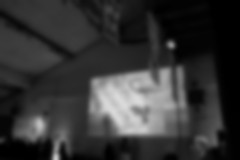










Brave New World?
a panel discussion on the subject of “Smart Cities” based on Songdo in South Korea
- March 2017 at Haus MUCCA
a panel discussion during the MCBW by Schnitzer&
concept by Julia Hinderink MA RCA, Schnitzer&
funded by The Bavarian State Ministry for Economic Affairs and Media, Energy and Technologie
in Cooperation with the Consulate General of the Republic of Korea
graphic design by Designbüro Josef Grillmeier
Media partner: Detail, Bauwelt, muenchenarchitektur
@Edward Beierle
Video
Flyerbnw_flyer
Posterbnw_poster
Abstract
Songdo IBD is a Smart City $20-40 billion development for a 500,000-person city built on reclaimed land by the Yellow Sea in South Korea. It is supposed to be the best example of a smart city with a unique strategic position. 1/3 of the world’s population is accessible within a 3 ½ hour flight from Incheon International Airport.
The ubiquitous city is equipped with a citywide pneumatic waste system, a 25 km bycicle path and all mayor venues within a 15 minutes walking distance. 40 percent of Songdos area is dedicated to green space which doubles as an efficient environment protection and great offering for outdoor activities. The digital interconnection of the city allows a 30 % reduction of energy and resources consumption. And the overall video surveillance suggests a crime free living.
Koreans are known as early adopters of new technology and have a different attitude towards the hyper surveillance of Songdo. “ in the west, ubiquitous computing is a controversial idea that raises privacy concerns and the spectre of a surveillance society…But in Asia the concept is viewed as an opportunity to show off technological prowess and attract foreign investment.“ NYtimes, Pamela Licalzi
While Songdo is an exceptional project for Korea, the global market for the Smart Cities industry is valued more than 400 Billion US Dollars. Its BIG Business!
We invited 6 participants from different disciplines to the panel discussion to address several topics including big data and nudging, smart versus responsive city and flexibility and demography in a fast evolving technology.
find the article in DETAIL here
Programme
4.30 pm - entrance
5.00 pm - welcome Martin Schnitzer and consul general Bumhym BEK
5.15 pm - introduction Julia Hinderink
5.30 pm - paneldiscussion
7.00 pm - Korean dinner & dance floor opening
Panelists
Monica Bernardi, Sociologist, Research Fellow Milano-Bicocca University
Monica Bernardi is an urban sociologist and a fellow researcher in “Quality of Life in the
Information Society” at the Milano-Bicocca University (Italy). Her research focuses on sharing cities
and the governance model implemented in order to support the practices and services of the
sharing economy in cities.
Minsuk Cho, Architect MASS Studies, Korea
Minsuk Cho (Korea, b. 1966) is an architect and founder of Seoul-based firm Mass Studies. Cho graduated from Yonsei University and Columbia University, and spent his early career in New York and Rotterdam, and in 1998, co-founded Cho Slade Architecture in New York. Since returning to Seoul in 2003, he has been committed to the discourse of architecture through socio-cultural and urban research and mostly built works, which have been recognized globally. He has co-curated the 2011 Gwangju Design Biennale, and was the commissioner and co-curator of the Korean Pavilion for the 14th International Architecture Exhibition - la Biennale di Venezia, which was awarded the Gold Lion for Best National Participation. Cho is an active lecturer and speaker at symposiums worldwide.
Julian Cross, Principal KPF, London
KPF did the masterplan for New Songdo City. Julian's impressive portfolio spans a broad range of high end residential, commercial, and hotel developments worked on over 20 years as an architect and project manager. Having played a leading role on a number of projects in central London, Julian has an in-depth knowledge of the planning process and has overseen numerous successful applications. An alumnus of The Royal College of Art, Julian is committed to recognising emerging talent and has taught at the Bartlett School of Architecture, London South Bank University, and the University of Greenwich. He is a chartered architect with the Architects Registration Board (ARB) in the UK
Cornelia Daheim, Principal at Future Impacts Consulting, Berlin
Cornelia Daheim is a foresight expert and consultant, founder and principal of Future Impacts. Since 2000, she has been leading foresight projects for corporate customers and public sector projects, e.g. in international research projects for the Korean innovation institute STEPI, the European Parliament or the European Commission. Her topic focus is on the future of work, societal change and inclusion, future cities, and the future of energy and mobility. Daheim has spoken on foresight and future trends on all continents. In 2003, she founded and has since acted as head of the Millennium Projects German Node – the MP is the worlds largest foresight NGO on future global change. She is Vice President of the Foresight Europe Network and has been named one of the worlds top female futurists.
Leif Huff , Partner IDEO Munich
As an IDEO partner and executive design director at IDEO’s Munich studio, Leif is passionate about finding the most impactful ways to bring human-centered brands, products, spaces and experiences successfully to market. He is happiest when collaborating with clients and colleagues to integrate innovation and meaning into the design process. Passionate about making things real and with a love of design, Leif has created strategies, comprehensive design languages, and award-winning products and services for renowned international and German companies.
Leif joined IDEO in Palo Alto in 1992, before moving to the Boston studio where he stayed for two years. Upon returning to his native Germany, he worked for Siemens Design before co-founding IDEO Munich in 2001.
Gerhard Schmitt, ETH Future City Lab, Singapore, Zürich
Gerhard Schmitt is Professor of Information Architecture at ETH Zurich, Lead PI of the ETH Future Cities Responsive Cities Scenario, Founding Director of the Singapore-ETH Centre in Singapore, and ETH Zurich Senior Vice President for ETH Global.
Gerhard Schmitt holds a Dipl.-Ing. and a Dr.-Ing. degree of the Technical University of Munich, TUM, and a Master of Architecture from the University of California, Berkeley. His research focuses on urban metabolism with the associated emissions, Smart Cities and linking Big Data with urban design, urban models, simulation and visualization. He and his team developed and taught the first Massive Open Online Courses on Future Cities, Liveable Cities and Smart Cities with over 50’000 students from 165 countries.
Moderation: Sarah Dorkenwald, München